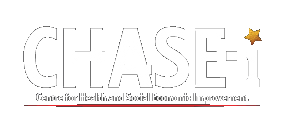Insight into overconsumption of sugar among children, its negative effects on their health and how they can be supported to change this behaviour.

Maureen Nabatanzi
- February 8, 2022
Children are known to prefer sweet foods and beverages. They tend to crave sugar, sweets and foods high in sugar like ice-cream, cakes and juices. This would be okay if they don’t end up getting addicted, consuming more free sugar than their bodies need and increasing their risk of obesity and related diseases. Scientists from the University of Minnesota reported that in animals, sugary foods can be as addictive as cocaine. Although evidence of addiction among humans is scarce, we know that children find it difficult to give up sweet foods. For a diet to be healthy, it should include naturally occurring sugars as components of whole foods like whole fruits, vegetables, milk and dairy products, and grains. The term ‘‘free sugars’’ refers to sugars added to foods and beverages by the manufacturer, cook, or consumer (also called added sugars). The term may also include sugars naturally present in honey, syrups, fruit juices, and fruit juice concentrates. In comparison to intrinsic sugars within intact plant cell walls or lactose naturally present in milk, free sugars may have negative physiological consequences.
The World Health Organization recommends limiting children’s intake of free sugars to less than five to ten percent of total dietary energy. To put that into perspective, five percent of daily energy for a three-year-old girl is equivalent to <13g or <3 teaspoons of free sugars per day. In contrast, orange flavored soda – a favorite child’s drink can contain as much as 45g (about 11 teaspoons) of sugar per 330ml serving. With this much sugar added to easily accessible drinks, it is no wonder that globally, children are consuming higher than recommended amounts daily. Intake of free sugars varies by age, setting and country. For example, in South Africa, daily sugar consumption in the urban population constitutes 10.3% of total energy in comparison to 7.5% among rural communities.
Aside from the sweetness function that added sugars in foods provide, they are not a necessary component of the healthy diets for children. Added sugars provide calories without other essential nutrients like proteins, vitamins, minerals and fibre that children’s bodies need to thrive. Furthermore, they can displace nutrient-dense (wholesome) foods in children’s diets. Excessive consumption of sugars has been linked with increase in risk of cardiovascular disease, excess weight gain and obesity, elevated blood pressure, insulin resistance and type 2 diabetes mellitus. Diets high in free sugars also increase the risk for dental caries.
Starting from infancy, parents/guardians should promote diets composed of whole foods as opposed to foods with free or added sugars. Sources of sugar in its natural form such as human milk, milk, unsweetened dairy products, and fresh fruits should be chosen over sugar sweetened beverages like sodas, fruit juices, smoothies, sweetened tea and milk products. Whenever possible, children should be offered water or unsweetened drinks. Don’t offer children sweet foods as a reward.
Governments have the responsibility to adopt and implement context appropriate policies aimed at reducing the intake of free sugars in infants, children and adolescents. This may include public health education, improved labelling, restriction of advertising of sweetened food products to children, and introducing standards for food products and school meals.
The “Food and beverage Advertising to Children in Uganda (FACe-U)” project funded by the Makerere Research and Innovations Fund (MakRIF) is addressing knowledge gaps on unhealthy food (including sweetened foods) advertising targeting children. Understanding the types of unhealthy foods, magnitude and methods used to advertise to children will help us raise awareness among parents/guardians and policy makers, and promote healthy child diets.
About the Author
Maureen Nabatanzi is a Public Health Nutritionist and research fellow with the FACe-U project. She can be reached on mnabatanzi@musph.ac.ug


